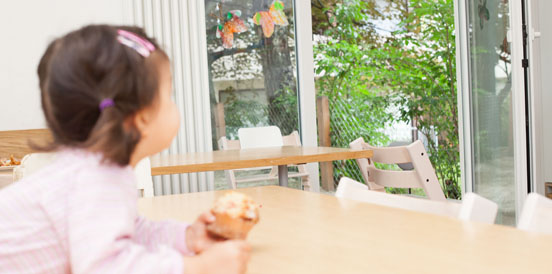Share Content
Article Link Copied
How Can We Promote Children’s Development?

It pays to promote early childhood development and education and to encourage play-based exploration. This is the conclusion reached by the ZEPPELIN project, which is funded by the Jacobs Foundation. ZEPPELIN stands for Zürcher Equity Präventionsprojekt Elternbeteiligung und Integration, a Zurich-based research and prevention project that promotes parent participation and integration. It is one of Europe’s largest longitudinal intervention studies with a random-assignment design.
ZEPPELIN works with families that find themselves in difficult circumstances around the time of a child’s birth and need support related to early childhood education and care. Such circumstances might include a lack of social support, precarious financial situations, unemployment or family problems, all of which can make the transition to parenthood particularly challenging. Every two to three weeks, a trained worker visits families at home to help parents better understand their children’s age-specific needs. The program is modeled after the Parents as Teachers (PAT) program in the United States, in which 133 young children from socially disadvantaged families were visited every two to three weeks over a period of three years. They were compared with a control group made up of 118 similarly disadvantaged families that did not receive such services. The aim was to determine whether support for families beginning at the time of a child’s birth actually has an impact.
The research team, which was headed by project director Prof. Andrea Lanfranchi of the University of Applied Sciences of Special Needs Education (HfH), sought to answer the following questions: “Does this intervention have an impact on children’s development?” – “Does it improve parenting skills?” – “Does it help families become more integrated and able to participate in society?”
Positive effects on language development and behavior
The most obvious effects can be observed on language and behavior. Children who participated in the PAT program show significant benefits relative to members of the control group. They have a more extensive vocabulary and are better able to express themselves; they are less anxious and better able to sleep through the night; and they have superior impulse control and are better able to delay gratification.
The study also found that these positive impacts are closely associated with a more stimulating home environment. After participating in the PAT program for just one year, mothers were considerably more sensitive to their children’s needs than mothers in the control group.
Greater participation in society
Parents who participated in the PAT program are more socially connected. They are, for example, much more likely to use resources such as libraries and facilities that lend out toys and games.
It is more common for children in the treatment group to be involved in programs outside of the home (private or center-based child care, play groups). They have more frequent contact with children from other linguistic backgrounds, as well as regular contact with children in a group with consistent membership. Compared with mothers in the control group, PAT mothers feel better supported by their partners. Mothers in the intervention group who are not native German speakers frequently attend German classes.
In addition, the researchers are seeking to determine whether early childhood interventions increase educational opportunities over the long term. They will not be able to answer that question until further studies are completed – when the participating children enter school in 2018/19 (ZEPPELIN 6–7) as well as when they transition to secondary school in 2023/24 (ZEPPELIN 12–13).